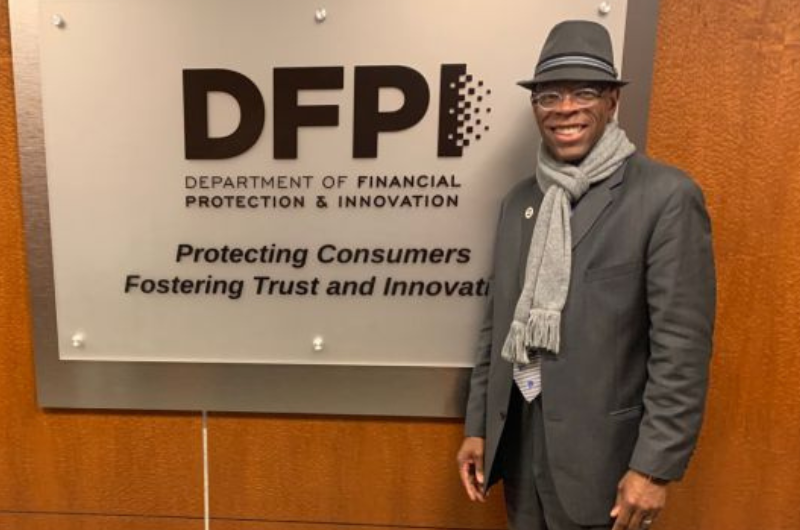


California Gov. Gavin Newsom recently announced the appointment of Greg Young as senior deputy commissioner of corporations and financial institutions for the California Department of Financial Protection and Innovation (DFPI). He joined the department on March 30 and will be based in San Francisco.
Prior to his appointment, Young served as community lending manager at Umpqua Bank since 2021. He was a life insurance agent at New York Life Insurance Company from 2019 – 2021 and a vice president and retail sales manager at Bank of America from 2016 – 2018.
Young was a vice president and market growth and development consultant at Wells Fargo from 2014 – 2016 after serving as a corporate social responsibility officer and in several other positions with the bank since 2001. He was also a partner at ThinkFeelGrow from 2008 – 2011 and an account executive at American Express from 1997 – 2000. Young was also a labor staff assistant and chief legislative clerk for the office of U.S. Senator Ted Kennedy from 1994 – 1995.
Upcoming DFPI Report on Silicon Valley Bank Oversight
On March 20, the DFPI announced it will conduct a comprehensive review of the department’s oversight and regulation of Silicon Valley Bank and its failure, issuing a report by early May 2023. Through this review, the DFPI will examine how it can strengthen and update its system of financial regulation to meet emerging and evolving challenges, the department stated.
DFPI Commissioner Cloey Hewlett had confirmed the release of this upcoming report with credit unions from across the state during the California Credit Union League’s recent 2023 California Government Relations Rally (GRR).
Report on Bank & CU Fee Income from NSF and Overdraft Charges
The 2022 Annual Report of Income from Fees on Nonsufficient Funds and Overdraft Charges is available on the DFPI’s website. Background on the law and the reporting process is posted here, including a frequently-asked-questions section.
You can also read more here. The League believes this report is very myopic in its viewpoint and does not paint the entire picture for a credit union’s comprehensive service for its membership. As not-for-profit organizations, credit unions operate to benefit their members rather than to make a profit for shareholders. Solely focusing on the financial impact of one aspect of credit union operations undermines the broader ecosystem providing exceptional member value.
Moreover, credit unions’ reliance on fee income has been trending downward for the past five years. For example, in 2018, in terms of income derived from fees and other charges, California state-chartered credit unions’ average was 1.06 percent (basis points). However, in 2022, California state-chartered credit unions averaged 0.88 percent (basis points), thus showing a 20 percent decrease in fees and other charges.
This data point illustrates a downward trend; however, it is unfortunately not observed in the report.
Additionally, the League is also concerned that such a narrow view as reflected in the report could lead to an unintended effect on consumers. For example, limitation on such fees could force credit unions to choose between accepting the increased risk that comes with unchecked consumer overdraft behaviors or, more realistically, eliminate these services altogether, or at least scale back on consumer-friendly products such as free checking accounts.
This could have serious consequences for a consumer who may experience a cash shortfall, requiring the consumer to look to payday lenders to obtain money for essential purchases. In addition, credit unions may also have to make other considerations such as increasing loan rates or lowering deposit rates, or perhaps charging in other areas.
Because credit unions are owned by their members, they have traditionally worked hard to minimize fees on products and services — particularly for those of modest means — and offer opportunities for financial education and empowerment.
2855 East Guasti Rd., Suite 202
Ontario, CA 91761
909.212.6000
1201 K. St., Suite 1050
Sacramento, CA 95814-3992
916.325.1360
c/o Great Basin FCU
9770 South Virginia Street
Reno, NV 89511-5941
202.638.5777 www.cuna.org
www.dfpi.ca.gov
Clothilde “Cloey” V. Hewlett — 415.263.8500
fid.state.nv.us
702.486.4120 (Las Vegas)
775.684.2970 (Carson City)